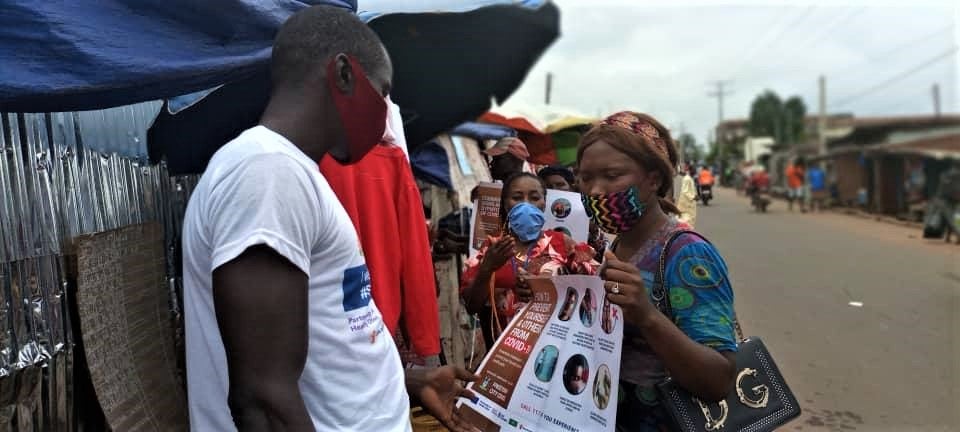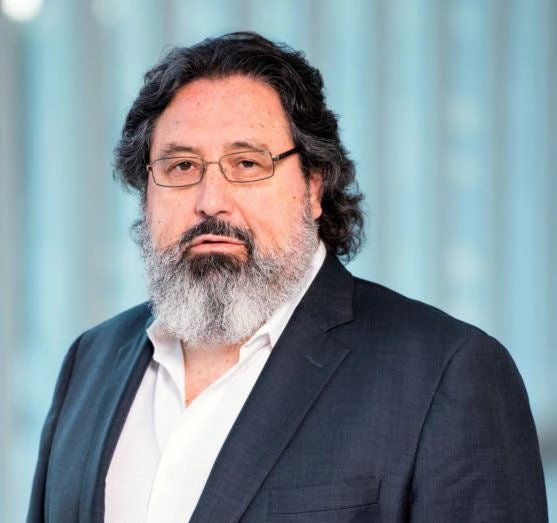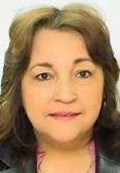 Freetown City Council community engagement to prevent the spread of COVID-19 in Sierra Leone.
Freetown City Council community engagement to prevent the spread of COVID-19 in Sierra Leone.
In response to the rapid spread of the COVID-19 pandemic, and building on accumulated experience with health crises in the past 20 years, the World Bank Group sprang into action in late February 2020. Working closely with national teams, WHO, UNICEF and other international partners to support countries’ responses, the World Bank prepared the $6 billion global COVID-19 emergency health response in just a few weeks.
The Bank currently provides emergency health and social support to 111 countries, covering about 70% of the world’s population, including millions who live in places affected by conflict and fragility.
The progress has been fast and significant
The Bank’s goal is to assist countries in their efforts to prevent, detect and respond to COVID-19, and to strengthen national public health preparedness systems. A menu of options allowed World Bank country teams to tailor projects to the specific circumstances of each country.
Country examples illustrate how funding allocated under the program is aligned to service provision and population needs.
Case detection, confirmation, contact tracing, recording, reporting
In Ghana, support has been provided to recruit and train 4,410 health professionals, 1,385 contact tracers and 318 laboratory technicians. Drone delivery of samples from remote areas to test centers has also been initiated, along with the potentially time saving practice of “pool testing,” in which multiple blood samples are tested together and processed separately only if a positive result is found. This has led to the identification and testing of 361,542 persons as of July 2020.
In Georgia, support is being provided to strengthen public health laboratories and epidemiological capacity. As of the end of September 2020, an average of 9,000 polymerase chain reaction (PCR) tests and 1,700 rapid tests were being performed daily.
In Cambodia, the Bank supports decentralized laboratories and helps strengthen services in remote and underserved areas.
In Yemen, six central public-health laboratories have opened, and 930 health professionals have been trained in COVID-19 case management.
In Ethiopia, in the first 100 days after project approval, more than 11 million households nationwide were screened, lab professionals trained, and about 23 laboratories throughout the country are now conducting COVID-19 tests. A parallel project is also supporting the Africa Center for Disease Control’s region-wide response.
Health system strengthening
In Afghanistan, initial support has included procurement of emergency supplies, including 555,000 personal protective equipment (PPE) kits. These supplies have enabled health care workers to improve clinical management of about 10,000 hospitalized COVID-19 patients.
In Papua New Guinea, 6,846 infection, prevention and control (IPC) supplies and 31,200 PPEs arrived in June 2020 for nationwide use.
In India, the Bank’s operation helps cover salaries of more than 50,000 contractual frontline staff operating across the country’s 35 states and union territories.
In Argentina, Ecuador, Indonesia, Haiti, Iran, Senegal, Somalia, and Ukraine, the Bank has been supporting the acquisition of medical equipment to enhance service delivery capacity.
In Mongolia, as well as in China, support is being provided to strengthen capacities for a multi-sectoral response, particularly the interface of environmental, veterinary, and public health services to contain the spread of new viruses of animal origin at their source.
Water, sanitation and hygiene (WASH)
Many projects include actions on water and/or sanitation in health facilities. 57 projects include components of behavior change, hygiene and handwashing in health facilities, and 47 projects include support for medical waste management.
In Senegal, for example, the project supports a mix of water supply, hand washing, and sanitation activities in urban, peri-urban, and rural areas, including the connection of unserved localities to existing water supply systems.
Social and financial support to households
In Sri Lanka, additional financing of $89 million supports temporary scaled-up cash transfers under existing programs for registered elderly and disabled people and those with chronic diseases.
In Pakistan cash support covers 15 million vulnerable families. Additional support is being provided to 4 million female beneficiaries who were already receiving direct income support under this program.
In Kosovo, under the government’s existing social assistance program, cash transfers are being provided to 24,000 poor families, and to an additional 29,000 newly poor families.
In Rwanda, emergency cash transfers support 19,000 vulnerable households in Kigali, 8,400 other vulnerable households, and 7,700 vulnerable agricultural households (to enable access to seeds and fertilizers).
In Argentina, COVID-19 services are free when are delivered by public hospitals and health centers.
In Paraguay and Uruguay, testing and treatment services for COVID-19 are free of charge to the beneficiaries of the country’s public health and social health insurance programs.
Mental health interventions
In many countries, including Bosnia and Herzegovina, Cambodia, Ecuador, Guatemala, India, Lesotho, Liberia, Mali, Marshall Islands, Morocco, Mongolia, Niger, Nigeria, Republic of Congo, Senegal, Sri Lanka, Turkey, and Yemen, Bank projects support psychosocial interventions to help people deal with the negative psychological effects from stressors such as lockdowns, self-isolation and quarantines, infection fears, inadequate information, job and financial losses, and stigma and discrimination.
Community engagement
In Egypt, when movement was restricted, virtual communication tools helped to prepare the project. These tools enabled consultations with a wide range of stakeholders including governmental officials, frontline health workers and NGO partners. Virtual hospital visits guided by hospital staff equipped with PPE helped to gather information on how projects were being implemented and to get stakeholder feedback.
In Sierra Leone, building on the Ebola experience, the project has supported the Freetown City Council and the mayor to implement risk communication campaigns by forming teams of volunteers in each of the city’s wards, teamed with local councilors, chiefs, tribal heads, Mammie Queens and youth leaders, to conduct outreach activities and house visits to foster community engagement and influence behavior change.
In the Democratic Republic of Congo, a community-centered approach has been successful to counter misinformation, with feedback mechanisms to communicate critical risk and event information to all communities in the local languages.
As the COVID-19 pandemic continues to evolve, with new diagnostics and therapeutics developed, and vaccines trials progressing, the flexibility and agility of the World Bank’s health response will continue to be critical to support the next phase of country responses.
For a full list of the World Bank Group’s COVID-19 projects, please refer here




Join the Conversation